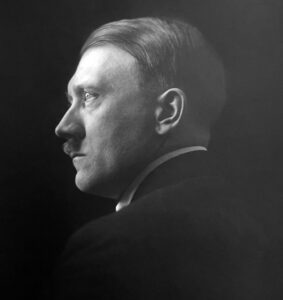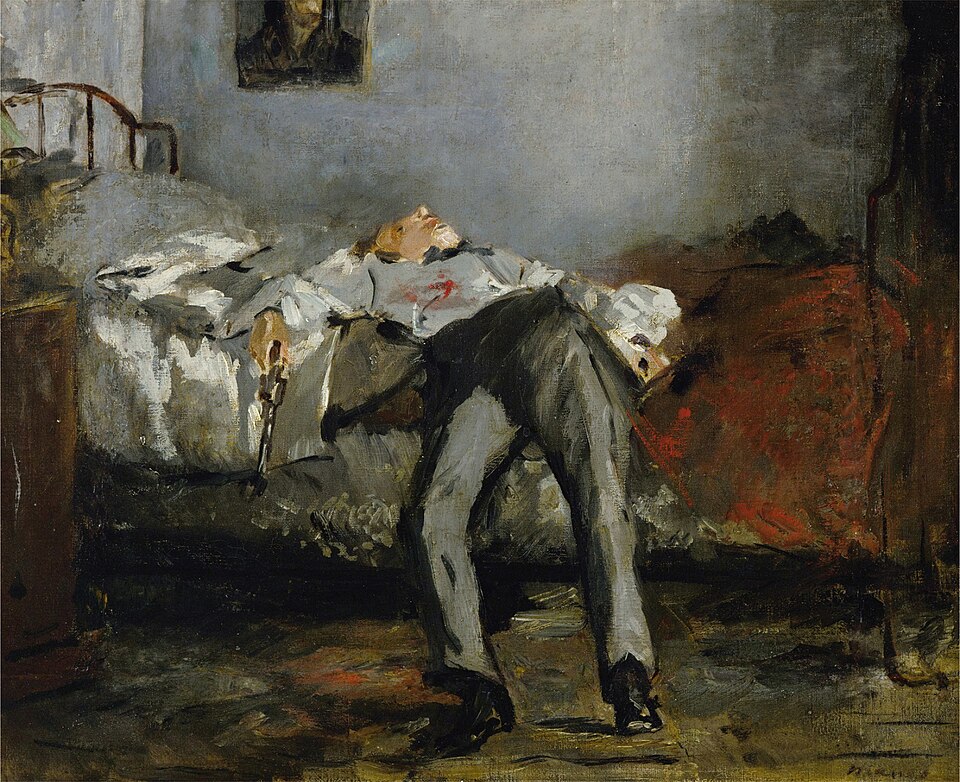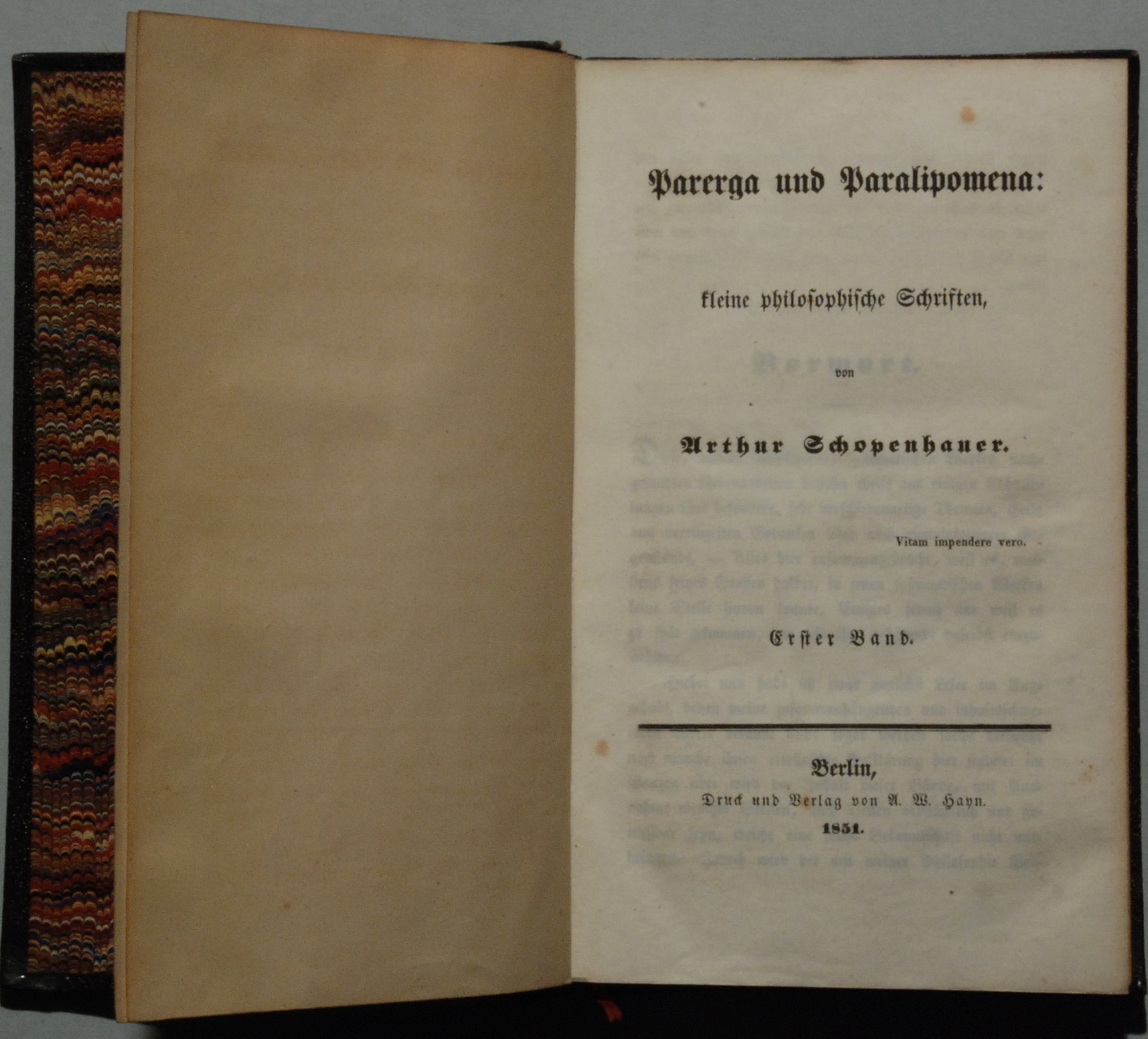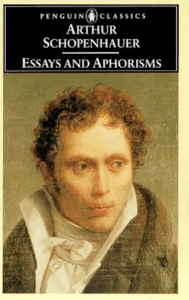and the Sun, 13
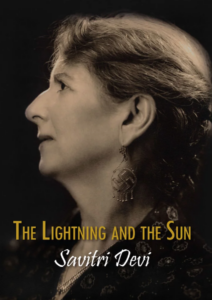
Early marriages of joyfully consented racial selection, to raise sexual relations […] had one aim and one alone: to breed, out of the best Germans, a nation of supermen in the Nietzschean sense of the word; a nation of ‘heroes like unto the gods,’ to repeat the words of Homer.
And, as I said before, the Führer pursued that aim not just because the Germans were his people, but because his, more-than-political, nay, more-than-human insight pointed them out to him as the only people sufficiently pure-blooded and, at the same time, sufficiently militant to be the saviours of the Aryan race, here and now, in its present-day emergency, and to become the instruments of its regeneration and survival, beyond the stormy end of our Time-cycle.
The well-known National Socialist policy of German expansion towards the East is the logical consequence of Adolf Hitler’s efforts to raise not only the biological quality of his people (through racial selection) but also their birth-rate, while doing all he could to avoid coming in conflict with England i.e., while refusing to claim, for Germany, colonies overseas. It was as clear and consistent as could possibly be: if every healthy and pure-blooded German was to have as many children as he or she could—the more the better—(and that was what the National Socialist State was urging them to do), then surely that yearly increase in population was to live somewhere and somehow. And if emigration overseas was to be discouraged (in order to avoid all economic rivalry with England, in those days in which there still existed a British Empire) then the growing millions had to find another outlet, for Germany was anyhow, and already before Adolf Hitler came to power, too small for the population she had. The new outlet was to be ‘the East’—the rich corn-lands of Ukraine, and further still: Russia’s illimited expanses.
This policy has been misunderstood […]
In order fully to understand both, one has—again—to consider National Socialism from the standpoint of cosmic evolution and to recognise, in it, the great Movement ‘against Time’ […].
[…] in order to overrun the earth with his own brood of poorer and poorer quality. That sinful will, coupled, as time goes on, with positive hatred for the eternal, natural Order, has found its latest main expression in the system of false values […]
[…] to organise the every day more enormous Menschenmaterial for the benefit of the Forces of disintegration. These, i.e., their agents, tend, admittedly to do away with the vast international slum which the world has become, but… only in order to drill the slum-dwellers—ultimately—into factory robots with one ideal: work, work, work; ‘production,’ ever more production, and cheap enjoyment—ever more enjoyment—quantity, and ever more quantity… till more and more millions of bastardised world-citizens have completely killed Nature for ‘man’s’ sake […].
In the eyes of the believers in quality, however (in the eyes of those who deplore that broadening disparity between actual life and its divine pattern, which characterises evolution in Time), any healthy tree, any perfect sample of manifested Life—is worth far more than an ugly,—degenerate human bastard. […]
That is, I repeat—one can never stress the point enough—the deep opposition between National Socialism and Marxism, nay, between National Socialism and all man-centred, equalitarian creeds, of which Marxism is merely the latest in date and the most consistent. It is the opposition between the Golden Age ideal of quality at all levels of existence, and the Dark Age dream of organised human quantity, submerging all life, until it itself finally sinks into chaos and death.
But we are, now, in the Dark Age—and, which is more, near the end of it. This is a fact which nothing can alter. And just as ‘tyranny can only be broken through greater tyranny, and terror through terror’ (Mein Kampf, p. 507), so can quantity only be crushed through quantity.
The truth which Adolf Hitler gave his people, so that they might become and remain the bulwark of Aryandom against the impact of a bastardised world drilled in Marxism (the latest Jewish revolutionary creed ‘in Time’), can be condensed in a few simple sentences: “We Germans are the only possible leaders of Western Aryandom. That is our ‘God-ordained’—Nature-ordained—mission. We are, therefore, valuable—irreplaceable. Therefore we must live; live and thrive; become numerous, at the same time as we breed an élite. Numerous at any cost (in this Age, in fact, pure-blooded quantity is the raw material out of which, here and there, quality emerges; great men are often born in large families.) Therefore, become a pure-blooded quantity; produce as many healthy Aryan babies as possible!  But we are a nation without space. And we need space for the many babies; space in order to live and fulfil our mission. We don’t want to become England’s enemies. The English are, like we, of Nordic blood (or mostly so). People of the same best blood should collaborate in view of the same lofty aim: the rule of the best of their common best blood. It is the original intention of Nature; the spirit of the eternal Order, against which we do not wish to sin. England can be (we hope) converted to this standpoint. But Russia has become the citadel of Marxism—that hated Jewish snare. It is, apart from that, a broad, rich land; can provide plenty of space for us, and all possibilities of our growing into a huge people. Huge, and of exceptional quality, therefore invincible; the lords of this earth along with our Nordic brothers, the English. Therefore: expansion towards the East—Ostpolitik!” […]
But we are a nation without space. And we need space for the many babies; space in order to live and fulfil our mission. We don’t want to become England’s enemies. The English are, like we, of Nordic blood (or mostly so). People of the same best blood should collaborate in view of the same lofty aim: the rule of the best of their common best blood. It is the original intention of Nature; the spirit of the eternal Order, against which we do not wish to sin. England can be (we hope) converted to this standpoint. But Russia has become the citadel of Marxism—that hated Jewish snare. It is, apart from that, a broad, rich land; can provide plenty of space for us, and all possibilities of our growing into a huge people. Huge, and of exceptional quality, therefore invincible; the lords of this earth along with our Nordic brothers, the English. Therefore: expansion towards the East—Ostpolitik!” […]
[…] if only England had not betrayed her own blood and deliberately started the Second World War.
The fact that all Adolf Hitler’s efforts to avoid the war—or to end it speedily and victoriously, at least honourably—remained fruitless, proves by no means his inefficiency as a statesman or as a strategist. It only proves that the forces of disintegration—the coalesced forces of our Dark Age, embodied in all-powerful international Jewry—were, in spite of his insight, in spite of his genius, too strong for him; that it needed a still harder ‘Man against Time’ than he, in order to break them; in other words, that he is not the last Man ‘against Time.’
Emsdetten in Westfalen,
Germany, 4th May, 1955.
______ 卐 ______
The Lightning & the Sun by Savitri Devi (Counter-Currents Publishing, 2014, unabridged edition) can be ordered here.
